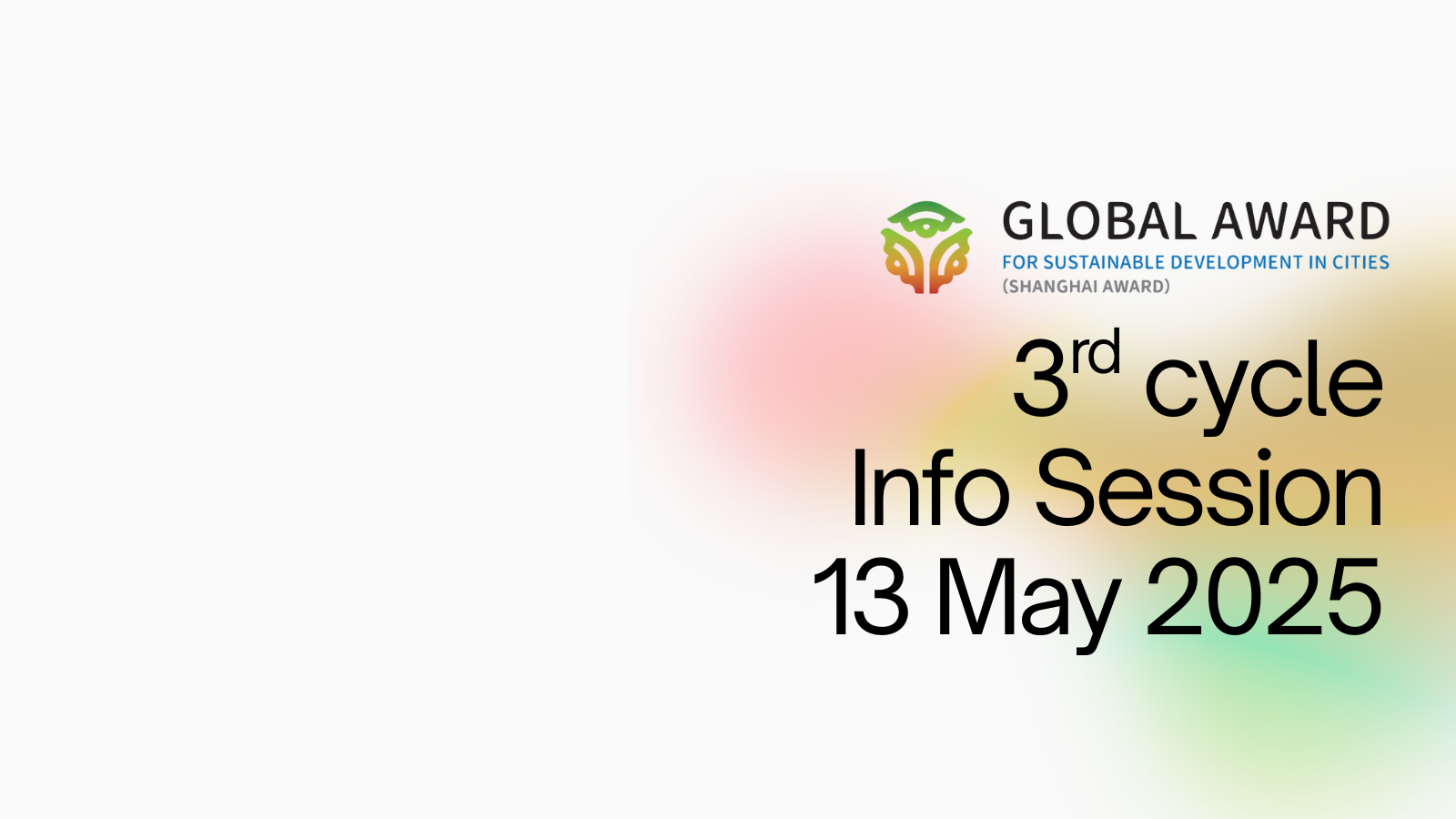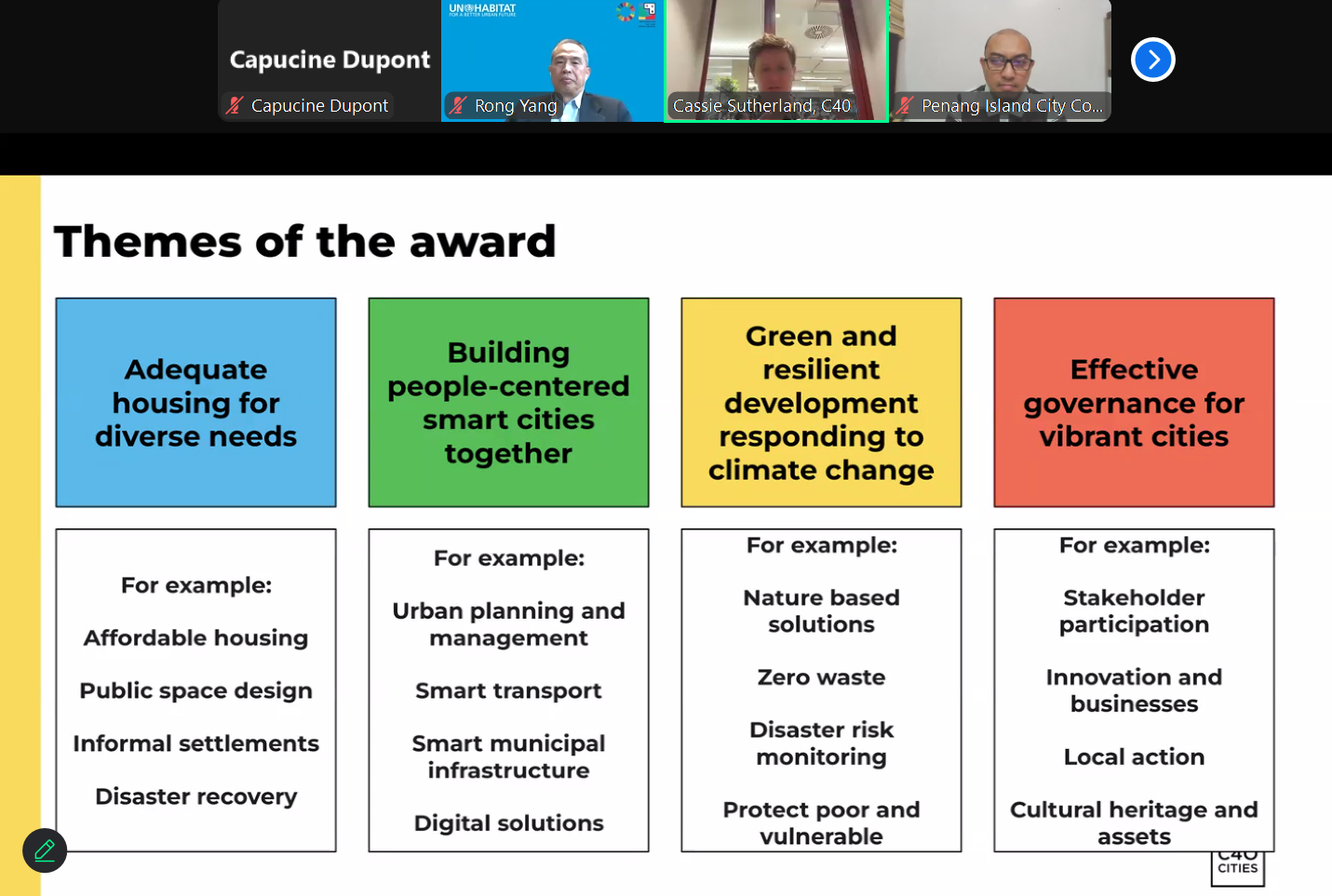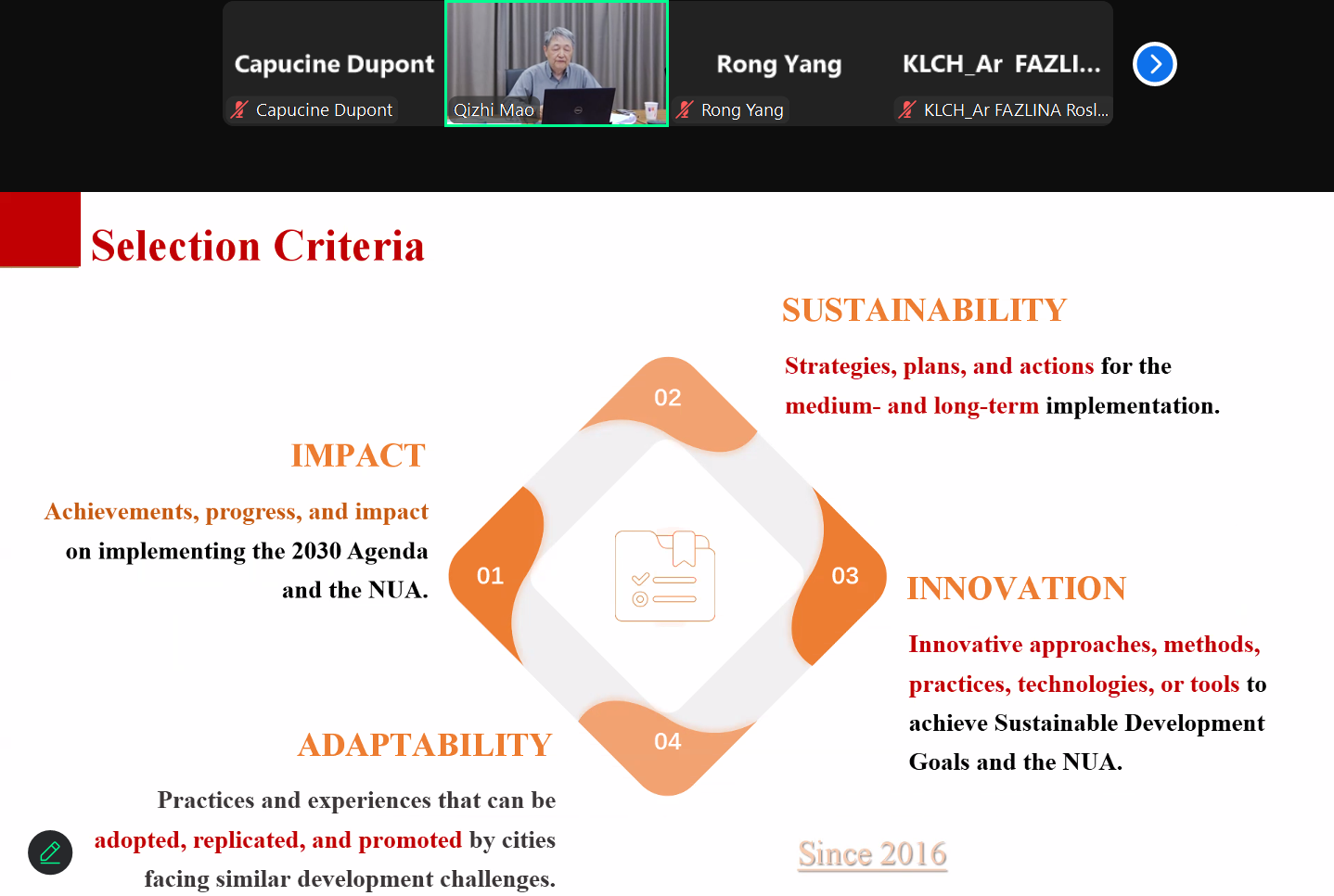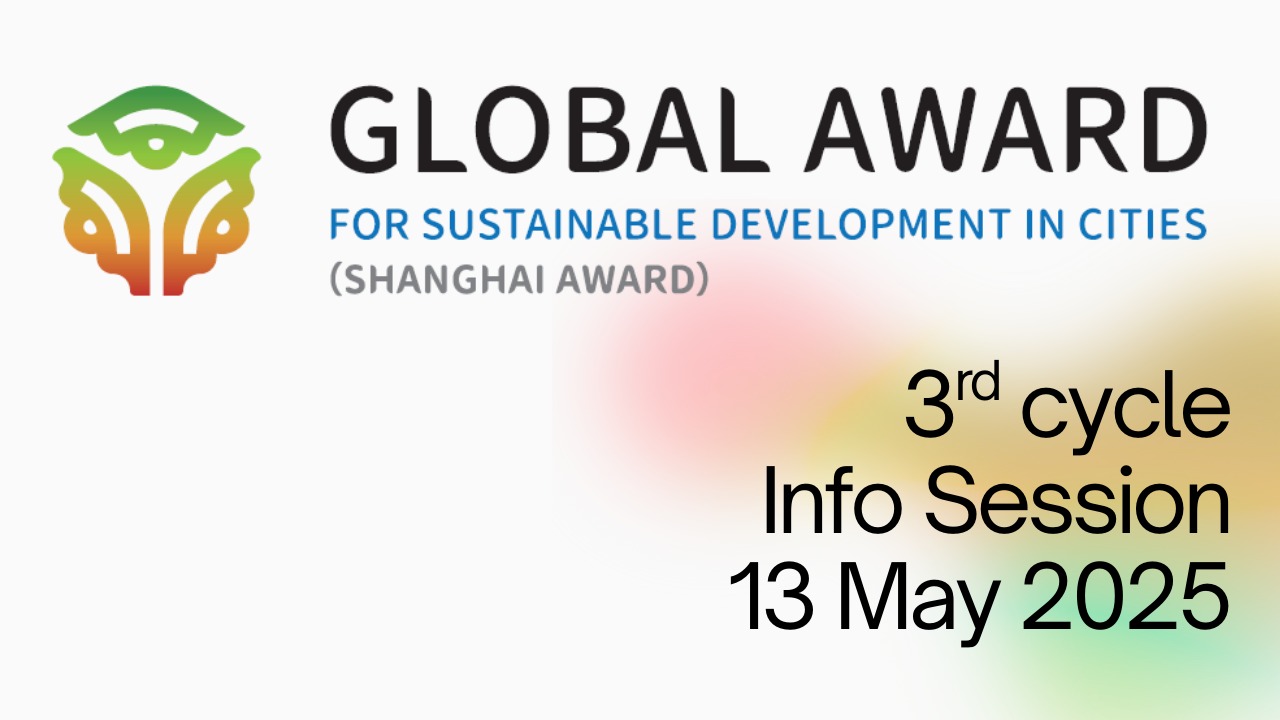
On 13 May 2025, the Global Award for Sustainable Development in Cities (Shanghai Award) hosted an online Info Session on its 3rd award cycle. The session welcomed participants from around the world, including city representatives, urban practitioners, and international stakeholders, all eager to learn more about this prestigious award and how to participate.
Moderated by Rong Yang, Inter-Regional Advisor at UN-Habitat, the session provided a comprehensive overview of the Shanghai Award's vision, the selection process, and past success stories.
The session opened with remarks from Erfan Ali, Chief of Staff and Director a.i. of Regional Programme Division at UN-Habitat, and Liu Qianwei, Chief Engineer of the Shanghai Municipal Commission of Housing, Urban-Rural Development and Management. Both speakers reaffirmed the strong partnership between UN-Habitat and the Shanghai Municipality and emphasized the importance of celebrating and sharing innovative urban practices that drive sustainable development globally.
Erfan Ali noted that, since the Award 1st cycle in 2023, winning cases have been featured in the Shanghai Manual and the UN-Habitat New Urban Agenda platform, as well as presented on major global platforms such as the World Urban Forum and World Cities Day. Liu Qianwei announced that, following an independent review by international experts, the winners of the 3rd cycle will be revealed at the official award ceremony on 31 October, during the global observance of World Cities Day.
The experience of George Town, Penang, Malaysia – a 1st cycle Shanghai Award winner – offered a compelling example of how cities can leverage the Award to strengthen their sustainable urban development efforts. Shahmi Azhan Md. Salleh, Senior Town Planner at the Penang Island City Council, shared valuable insights into the city’s application process and reflected on the positive impact of receiving the Award. He noted that this international recognition had given the City Council a significant confidence boost and reinforced its commitment to advancing sustainable practices. He also highlighted George Town’s exemplary initiatives in areas such as sustainable urban development, economic vitality, inclusive governance, innovation, and resilience – illustrating how a strong, multidimensional approach can strengthen a city's impact and make its Shanghai Award application more compelling.
Cassie Sutherland, Managing Director of Climate Solutions and Networks at C40 Cities and Shanghai Award jury member, introduced the Shanghai Award by emphasizing its role in celebrating cities at the forefront of sustainable, inclusive, and resilient urban development. She highlighted how the Award fosters peer-to-peer learning and exchange among cities globally.
Reaffirming the pivotal role cities play in driving climate action, she provided an overview of the Award 3rd cycle thematic areas. Submissions are expected to demonstrate impact, innovation, sustainability, and adaptability across four key themes: (1) adequate housing for diverse needs, (2) building people-centered smart cities together, (3) green and resilient development responding to climate change, and (4) effective governance for vibrant cities.
“Outstanding cases often emerge at the intersection of multiple domains,” she noted, using the example of digitalizing transport systems to simultaneously improve public service efficiency, reduce carbon emissions, and enhance the quality of urban spaces.

Prof. Mao Qizhi, Professor at the School of Architecture at Tsinghua University, Academician at the International Eurasian Academy of Sciences and member of the Shanghai Award technical review team, provided a thorough explanation of the selection criteria – impact, innovation, sustainability, and adaptability – and evaluation process. He offered practical advice to potential applicants on how to create a compelling submission. Cities are encouraged to submit applications via the official Shanghai Award website, emphasizing quantifiable results, strategic alignment and the replicability of innovations. “The application is not a list of achievements but a logical narrative of development,” he advised, suggesting that cities use the UN’s Voluntary Local Review (VLR) framework to link local practices to SDG goals, and utilize visualization tools to transform complex policies into accessible development stories.

The session concluded with an interactive Q&A, during which participants had the opportunity to engage directly with experts, clarify questions, and receive tailored advice on preparing application materials.
Experts offered the following suggestions:
- Cities are encouraged to demonstrate multidimensional practices to make applications more competitive.
- Supporting documents may include policy texts, monitoring data, and visual outputs.
- Supporting videos should be concise and highlight key results.
This Info Session provided valuable resources and inspiration for cities around the world. It reaffirmed the Award's commitment to supporting urban innovation and knowledge sharing, and to working together towards the goals of the 2030 Agenda and the New Urban Agenda.
Apply for the 3rd Cycle of Shanghai Award before 10 June 2025!
- Find out more information on how to apply here
- Submit your application via the online portal
Contact: outreach@shanghaiaward.org
